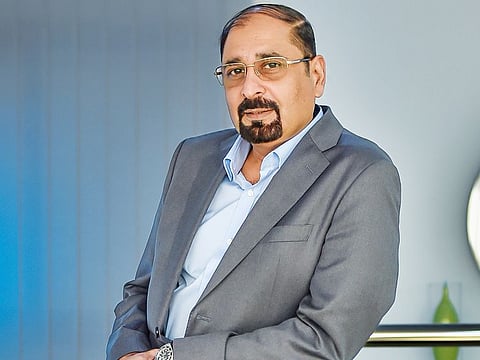Enercap presents global path-breaking solutions in energy storage
Made in UAE brand cracks code on supercapacitors being a revolutionary storage medium

Whilst it is widely assumed that energy storage, or batteries as they are commonly known play an integral role in climate change either through integration in renewable energy, electric vehicles or the optimisation of grid energy, we are now faced with several critical dilemmas. This includes not just how environmentally sustainable some of these technologies such as lithium ion could possibly be, but also whether we have enough natural resources to accommodate the demand that is being projected by experts.
Even as Dr John Goodenough, Akiro Yoshino and Dr Stanley Whittingham received a Nobel prize for their seminal work on the advancement of lithium-ion batteries, another genius, based in the UAE had already started working on a new technology in energy storage that is now set to transform and disrupt the industry. Waseem Ashraf Qureshi started working on supercap-based energy storage solutions in 2013, conceiving the idea of using supercaps as storage media instead of chemical cells as the base material for what is dubbed today as being the most superior energy storage system in the world.
Mitigating carbon footprint
While lithium ion and its contributions to the field of energy storage have been groundbreaking, it bears a huge carbon footprint of between 40 and 200kg per kWh.
“I wanted to break this paradigm and invent a technology that would be environmentally sustainable, while having advance performance characteristics,” says Qureshi, currently Chairman, CEO and CTO of Enercap Holdings. “I came to the UAE in the early 2000s, with an initial plan to work on off-grid renewable energy projects such as light industrial units. Around the time I had invented a device that we today call energy servers, a device that enables power conversion, conditioning and monitoring, integrating multiple inputs simultaneously.
"I then discovered that energy storage was a huge bottleneck, and that batteries constantly failed in the heat along with multiple charge cycles. Once at end of life they would also have to be disposed of.”
Qureshi started research on finding a new technology that would work in these demanding conditions and didn’t have any negative impact, neither through the manufacturing process nor to the environment when being disposed of.
Finding a breakthrough
“It’s such a shame to see how we have progressed with reducing carbon emissions in renewable energy technology, and now with electric vehicles but still face the challenges of the carbon footprint associated with the production, recycling and landfill of chemical batteries,” states Qureshi. In 2015, Qureshi finally cracked the code to enabling supercapacitors to being a medium of energy storage and functioning in the same applications that lithium ion or lead acid batteries could. Supercapacitors not only have much longer life (up to 50 years at cell level), but are also 100 per cent biodegradable.
Today, Qureshi’s efforts and inventions have led to a family line of energy storage commercial end products including Encap, Ensega, Ensirius, Enwall, Enpack and Enlight in the stationary storage industry, and Encharge and Batterix in the EV industry.
By teaming up with finance experts such as Burj Capital for fund raising and capital restructuring, Enercap has been able increase production capacity, further enabling the group to successfully deploy its technology in North and South America, Europe, the Middle East, Africa and South Asia. In 2022, Qureshi developed the technology further, inventing more advanced, higher energy-density products, allowing Enercap to close orders of over 2,000 modules with the Middle East and Africa’s largest telecom providers for BTS towers.
Recently, Enercap also closed large orders following extensive proof of concepts on its containerised bulk storage solution Enpack at the cutting-edge, high-tech smart city being built in Saudi Arabia, as well as providing solutions for grid stability and peak shaving in Turkey.



